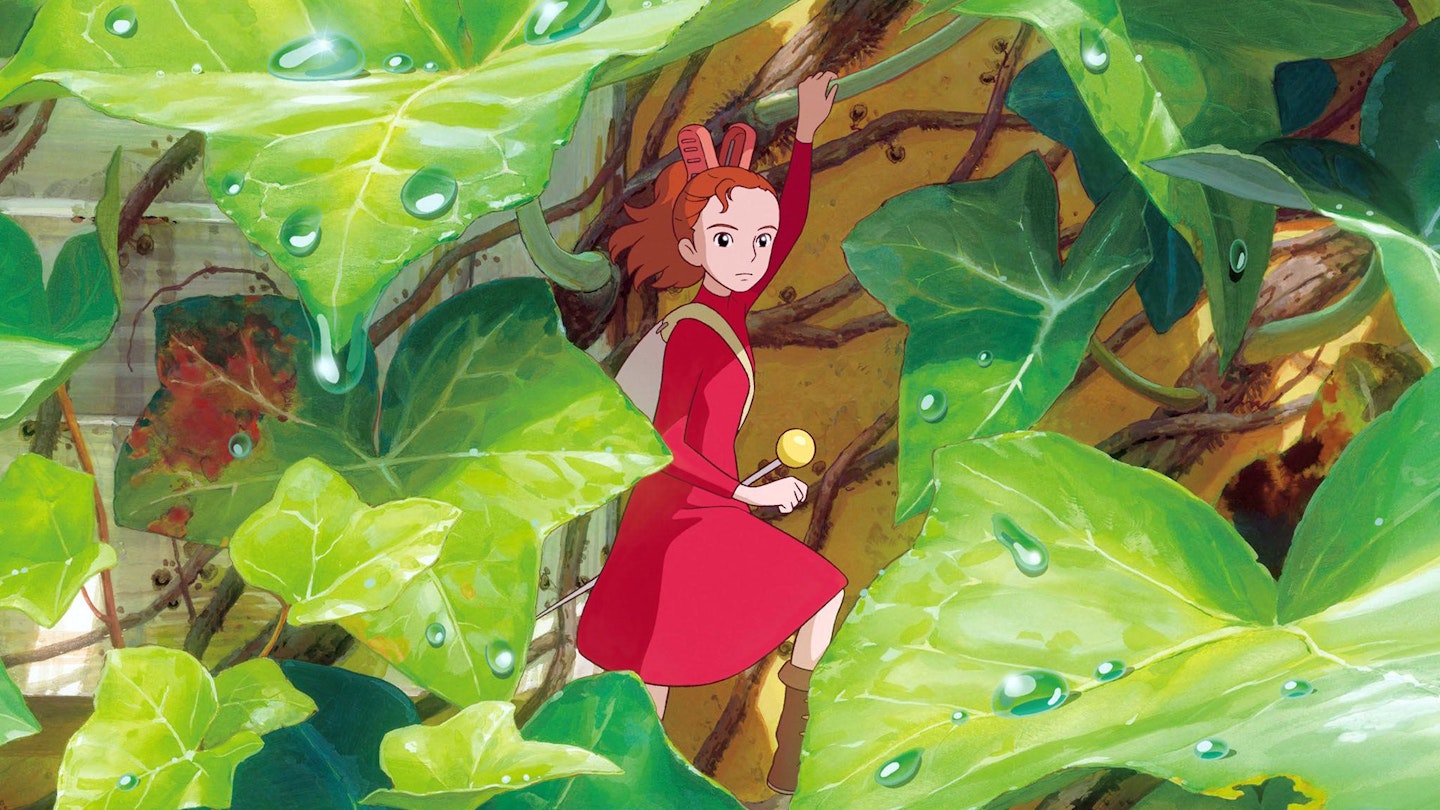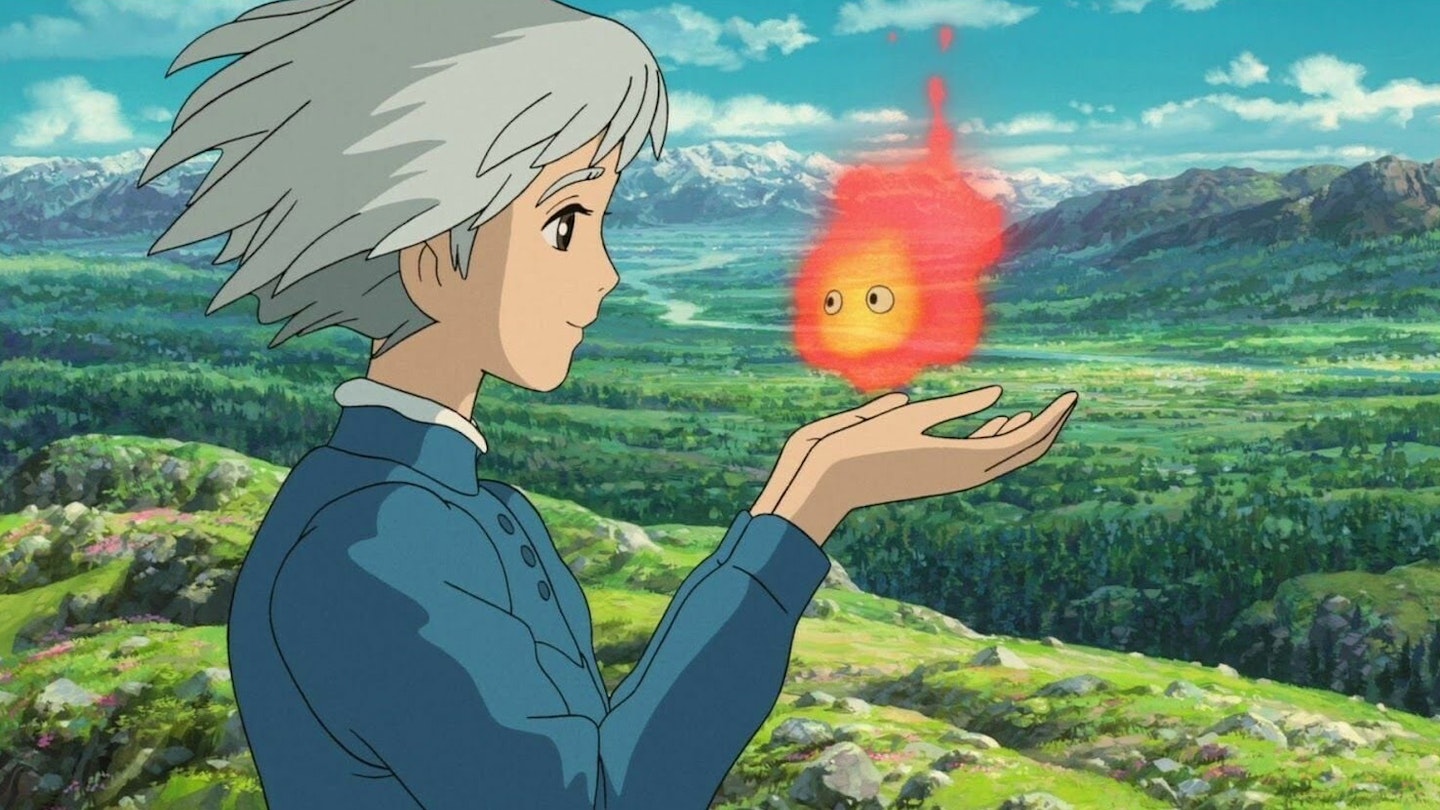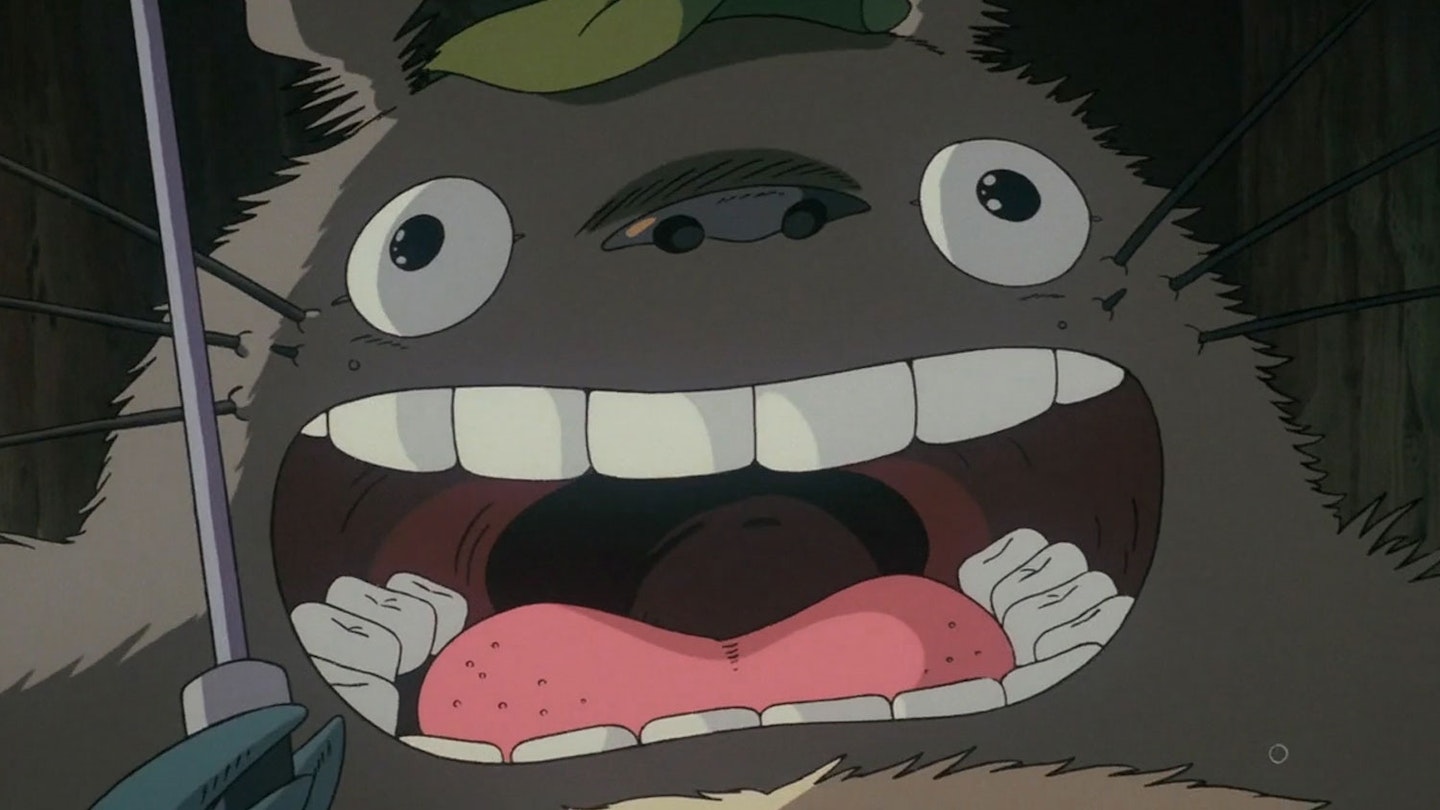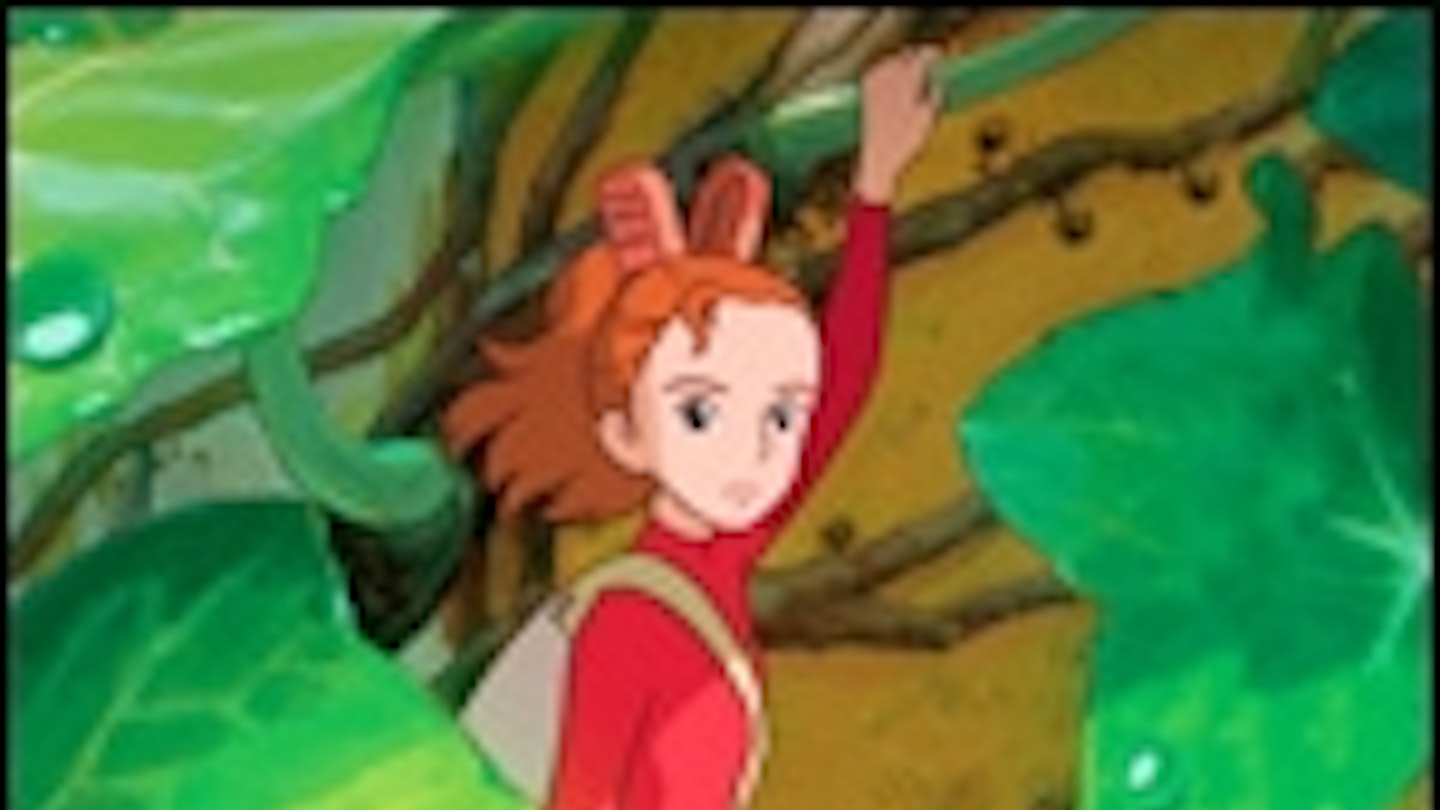Mary Norton’s novel The Borrowers has been adapted into a movie before, with Peter Hewitt’s John Goodman-abusing adaptation in 1997. But though it’s now been relocated to Japan via Studio Ghibli and reconceived by Hayao Miyazaki himself (who co-writes and plans, leaving it to protégé Hiromasa Yonebayashi to direct as his debut), this latest take on Horton’s text is by far the most faithful, keeping the focus on the three members of the Clock family and their interaction with a chronically ill human boy.
Yet it also feels definably Miyazaki, too, blending together themes and tones from his previous work. The lush, pastoral feel supplied by the verdant, jungle-like garden setting recalls My Neighbour Totoro in particular, as does the story’s meeting of two worlds; one everyday, one magical and secret. There is also a strong sense of the director’s Nausicaä Of The Valley Of The Wind. Arrietty is of a similar age and adventurous temperament to Miyazaki’s first heroine, and she too boldly yet sensitively explores a dangerous alien landscape dominated by gigantic creatures. Most strikingly, though, Arrietty echoes Nausicaä’s post-apocalyptic setting, even though it’s firmly set in our own pre-apocalyptic world.
As in Horton’s book, the Clock family are isolated and striving to survive in an incredibly hostile environment, not knowing what has happened to any others of their species or, indeed, if they are the last of their kind. Arrietty herself is confident and practical, and finds joy and excitement in the beauty and danger around her, but there is a profound sense of loneliness in her, too. She could be the last Borrower ever born — and the last to ever die.
Of course, these are just dark, intriguing undercurrents in what stands tall as yet another visually rich and elegantly detailed Ghibli picture, which is guaranteed to delight and enthrall anyone of any age. The sense of scale as Arrietty embarks with her gruff, laconic father into the human world on her first ‘borrowing’ is breathtakingly realised, both in terms of how Yonebayashi convincingly portrays the mundane as gargantuan and through some astonishing sound design, as what would be tiny taps and clicks to us boom resoundingly for the Clocks. One scene imbues a kitchen with a vastly cavernous, cathedral-like awesomeness, whose sheer faces (cupboard doors, table legs) are scaled nimbly by Arrietty and her father. Another, strangely touching moment has her hiding in vain from human boy Sho behind a paper tissue, unaware that her sillhouette remains nakedly visible. (It’s going too far to suggest anything sexual in their interactions, but it’s certainly more mature and emotionally complex than that between the young protagonists in the last Ghibli, Ponyo.) Other minutiae also impress: the way, for example, water behaves at Arrietty’s level of existence, being a dense and gloopy substance, clinging to her clothes in large globules, or slopping thickly out of a dolls’ house teapot.
Thus far, mainstream Western audiences haven’t engaged with the non-Miyazaki-helmed Ghiblis to the degree that they have with the master’s own films. Many are already familiar with the likes of Spirited Away and Princess Mononoke, but the likes of The Cat Returns, Whisper Of The Heart or even the soul-crushingly depressing Grave Of The Fireflies have gone largely unnoticed. Arrietty, coming from the youngest Studio Ghibli director yet (a mere whelp at 37) could well be the first to change that.




